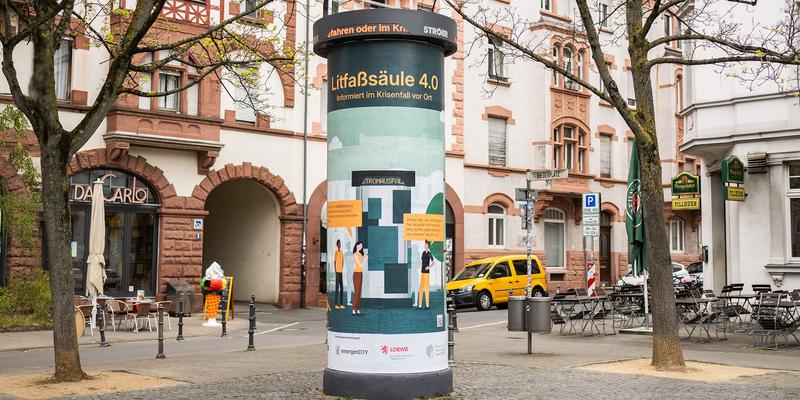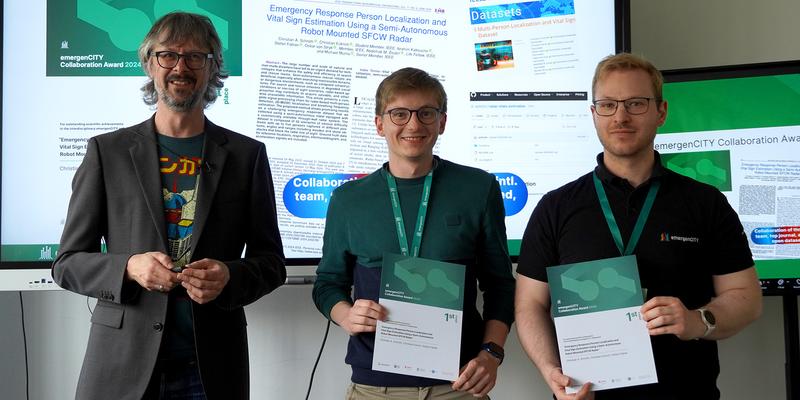For 36 years, Computer Security Day on November 30 has been drawing attention to IT security and the risk of cyberattacks. Since then, the risk of information and cyber warfare has been on the rise. Christian Reuter, member of the LOEWE Center emergenCITY’s Directorate, deals with these topics. To mark the day of action, emergenCITY is presenting two of its current research interests.
“We thought for a long time that we had overcome wars in Europe,” Christian Reuter, Professor of Computer Science in the Department of Science and Technology for Peace and Security (PEASEC) at TU Darmstadt, says. “But information warfare and cyber warfare are on the rise.”
His team is investigating how information technology influences warfare and how it can lead to peace. It is therefore about the connection between peace and security in virtual space. Christian Reuter’s work is closely linked to emergenCITY.
Not deleting false information, but labeling and explaining it
One focus of his research work is on the topic of information warfare. Christian Reuter gives an example: “We are all familiar with false information that is not as demonstrably false or harmful as a computer virus. The aim is sometimes just to create uncertainty: people no longer know what to believe. Especially before elections, such as the upcoming general election in February in Germany, they are a danger because they can manipulate opinions.”

Christian Reuter conducts research on information and cyber warfare. Photo: PEASEC/TU Darmstadt
Social media is a popular place for misinformation, fake news and satire because content can be disseminated quickly and cheaply. Deleting false information would be one way to minimize the risk of manipulation. However, Christian Reuter and his team have found in studies that deleting problematic content is understandably also perceived as censorship. So-called user-centered indicators, on the other hand, are more successful. In particular, if false information is marked with a warning and an explanation is provided as to why this content cannot be true, users are more likely to accept such measures. “Because every individual wants to make an informed decision,” Christian Reuter explains.
In their current study “From Adolescents’ Eyes: Assessing an Indicator-Based Intervention to Combat Misinformation on TikTok”, the researchers investigated how they can help young people to recognize problematic content on TikTok. They developed a smartphone app that provides young people with information and an explanation.
Clearly presenting security vulnerabilities
Another focus of Christian Reuter’s research is on cyber warfare. Cyber weapons are malicious programs for security vulnerabilities. According to the latest situation report published this year by the German Federal Office for Information Security, an average of 300,000 new malware variants are found every day. Computer Emergency Response Teams (CERT) attempt to identify and rectify such security vulnerabilities.
“But the flood of information is enormous and the teams are overloaded,” Christian Reuter says. “That’s why we developed a security dashboard in a research project that clearly displays data and supports the analysis of vulnerabilities.” They have also developed new methods for training AI with small data sets in order to be able to react as quickly as possible to current cyber situations.
Tips for everyday life
And each individual can also help to close security gaps, Christian Reuter says, and gives a few simple tips for everyday life: “Passwords should not be too trivial and should also not be reused. Password managers help with organization. If two-factor authentication is possible, it should be used. And yes, every now and then you should connect your hard disk to back up your data.”
Further information
Reference book: Reuter (2024): Information Technology for Peace and Security – IT Applications and Infrastructures in Conflicts, Crises, War, and Peace; https://doi.org/10.1007/978-3-658-44810-3; eBook ISBN: 978-3-658-44810-3



